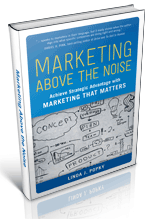
Over 60,000 people have now been diagnosed with the corona virus that is spreading around the globe, with nearly 1400 deaths. New cases are reported by the thousands each day.
 We don’t know yet how bad this epidemic will get. Quarantine has not yet stopped the spread, but quick identification and treatment may allow many, if not most, patients to recover.
We don’t know yet how bad this epidemic will get. Quarantine has not yet stopped the spread, but quick identification and treatment may allow many, if not most, patients to recover.
Beyond the health crisis, the disruption to ordinary life is just starting to be felt. Millions of people throughout Asia are quarantined or told to stay home and not work. This is creating major disruptions to the supply chain–factories throughout Asia, Europe and North America will be impacted. Workers will not be able to do their jobs, get paid, or feed their families–if food is even available.
Yesterday, MWC (the Mobile World Congress conference), scheduled for later this month in Barcelona, was cancelled because of the virus. Corona virus is not a health threat in Spain, but MWC attracts 100,000 people, including mobile technology providers and wireless carriers from around the world. Asian exhibitors can’t get to the event; attendees were concerned about contagion; the organizers couldn’t guarantee that would not occur, so they opted for cancellation.
The economic impact of cancelled events, production, and travel is not even estimable at this point. But here’s what we do know:
- We are a global society. Regardless of political leanings, most countries are economically interdependent. We need to act in a manner that reflects this.
- We can’t underestimate the severity of global health crises. Viruses know no borders. Preventing infection and treating patients in China saves lives there and around the world, and protects the world economy.
- There must be contingency plans. Events can be cancelled or rescheduled, but supply chains may be seriously disrupted for months or years. The travel industry will likely be thrown into chaos. How will manufacturers and distributors operate in these conditions? What is Plan B? Is there one?
- We disregard existing preventive treatments at our peril. There is no vaccine yet for coronavirus, but there is for influenza–which kills thousands of people each year. There are vaccines for mumps, measles, and many other contagious diseases–yet many people choose not to get them. The science is clear: prevention is always more effective than treatment after-the-fact. The life you save may not even be your own, but that of someone whose medical condition makes them less able to fight off an infection.
Now’s the time to think ahead–while there’s still the ability for protective actions to go viral.
Contact me to find out how you can get heard above the noise.
Check out our marketing thought leadership podcasts and the video trailer for my book, Marketing Above the Noise: Achieve Strategic Advantage with Marketing that Matters.
 .
.
Let us help your business rise to the top.
linda@popky.com
(650) 281-4854
www.leverage2market.com




